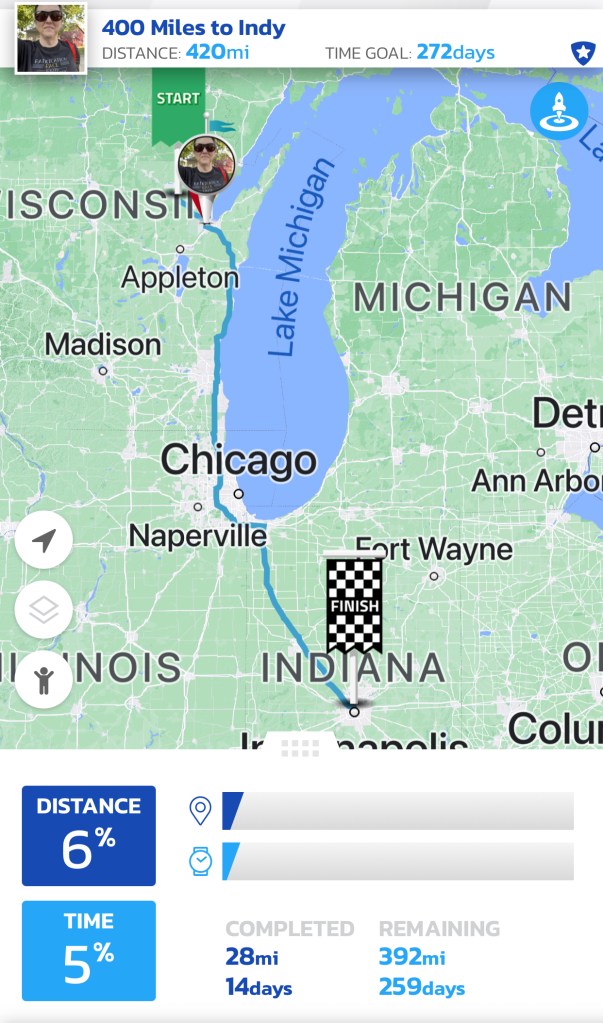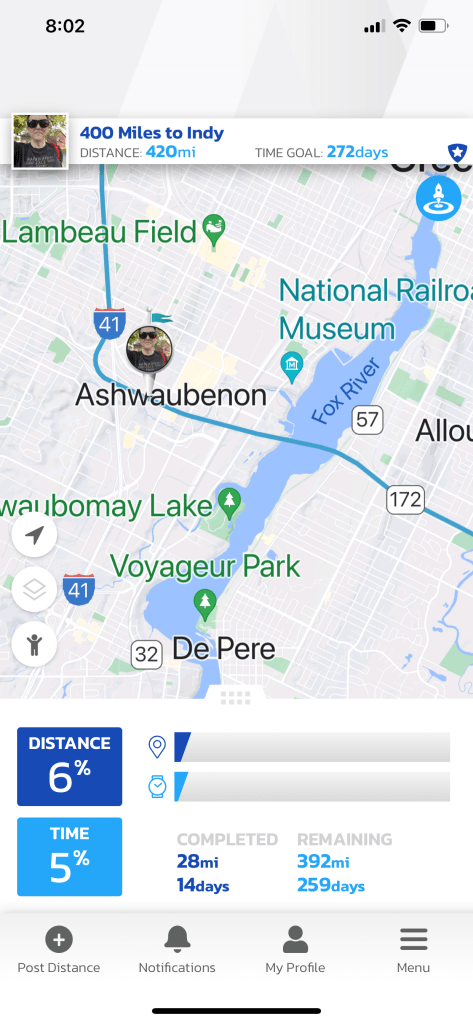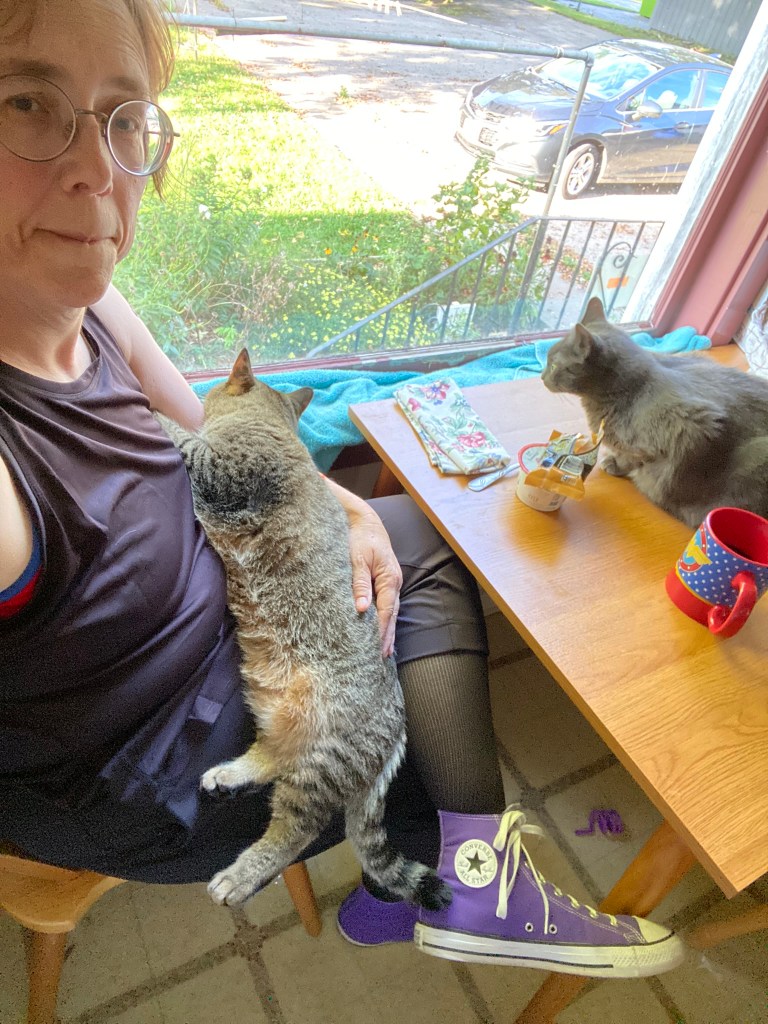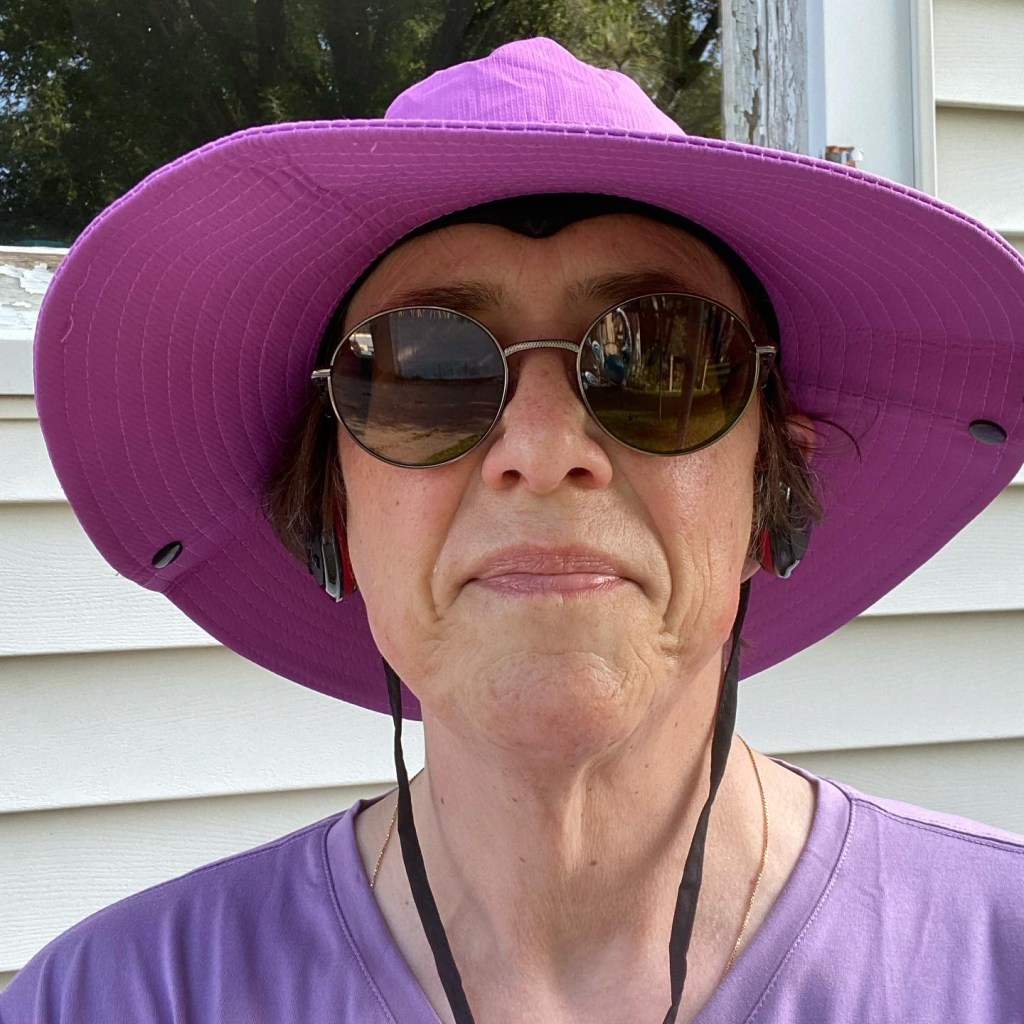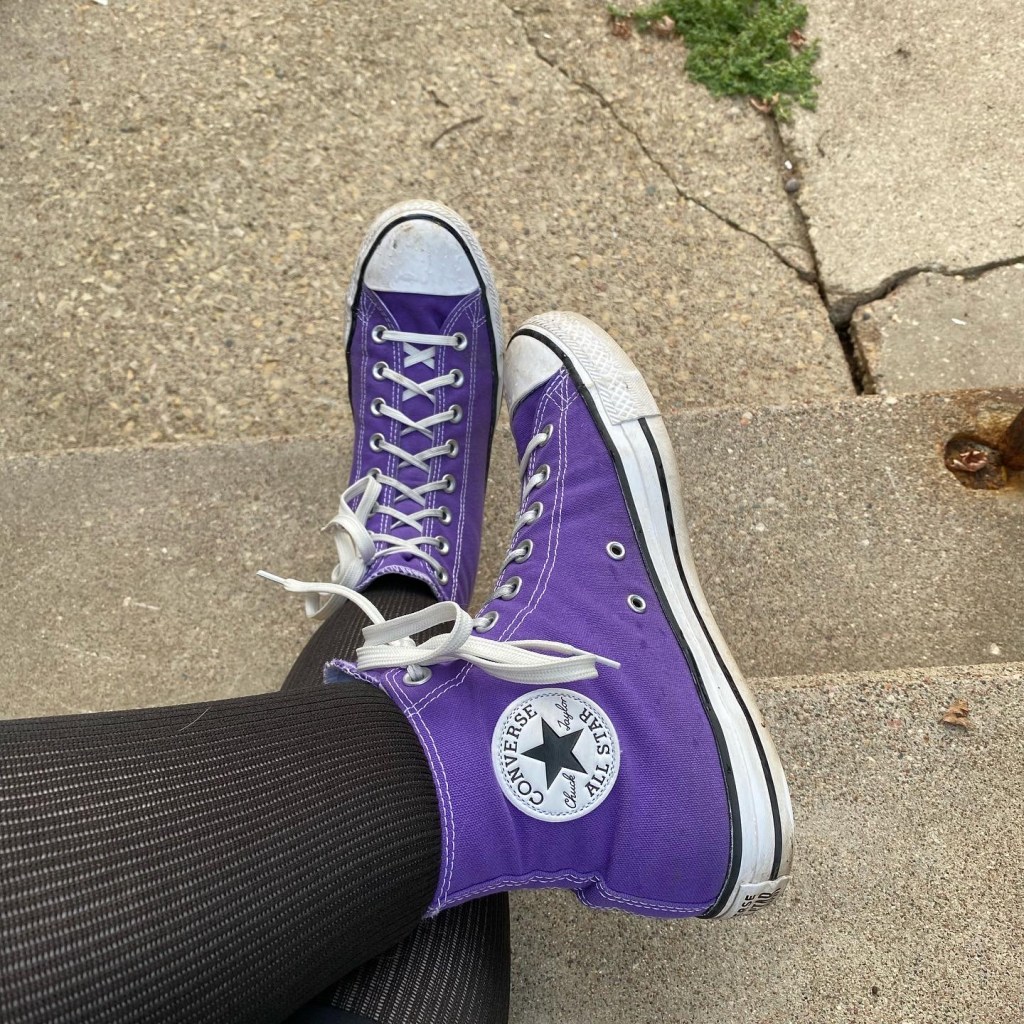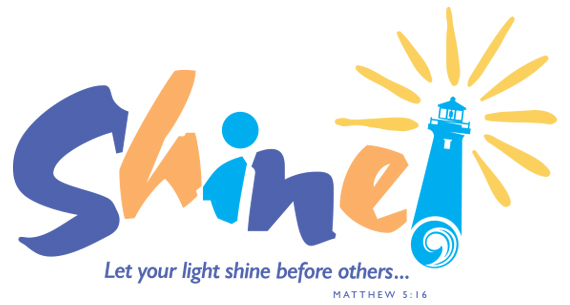My friends, today was … you know I’m not sure I actually have words to describe today, so I suppose I’ll settle for amazing. This has been, many of you know, a long journey filled with more than a few (thousand) setbacks, naysayers, disappointments, and more Today General Synod 32’s Committee 9 met to discuss and deliberate the resolution for Break The Silence Sunday.
The members of the committee opened their hearts, and minds, and spirits and truly did God’s work. They listened to each other, some sharing their own stories of why this work is important. They asked questions, not about IF we should do this work, but rather about HOW to do this work in different congregations, communities, and contexts. They thought through ways to make sure we are paying attention to the needs of different groups of survivors. They even added back in words about the church’s complicity in protecting perpetrators and perpetuating rape culture that I had taken out in previous drafts (in hopes of making the resolution more politically acceptable to a broad audience).
We still have some hurdles ahead. The modified resolution will be put before the full body of the synod either Monday or Tuesday. Our incredible committee chair, Rev Cheryl Lindsey, will present on behalf of the committee. I cannot say enough about how wonderful Cheryl was in facilitating and guiding the committee’s work. She framed our work with prayer, nurtured and listened to all who were present, gave me time to speak and answer questions, and truly showed what a chair can be.
After the vote by the full synod (presuming it’s a positive decision), the resolution will move to implementation and an entirely different set of challenges will face us – the work of taking BTSS to the wider church.
I ask for your continued prayers. I have been at this such a very long time and it’s strange to think I won’t have to push for this part of the process much longer. That will take some time to get from my brain to my heart, and then an even longer time to adjust to a new and different kind of work of advocacy and supporting survivors.
In the meantime, several people have asked for the text of what I said before the committee today so I include it for you here:
Address to the General Synod Committee, Moira Finley, 23 June 2019
(FYI, the number of stories heard that are referenced below needs to be updated to include seven more stories Lella and I heard today.)
Good morning. Thank you for your time, and your commitment to our denomination, to the work of helping shape the life and ministry of our churches.
And I thank you in advance for what I know is a difficult conversation ahead of us today. Rape and sexual violence are challenging topics for us to talk about because they ask us to be vulnerable with each other, and to face things that many of us would rather not.
I have to tell you that today feels a bit like a moment when the church I love, the one that professes extravagant welcome, will pass judgement on whether or not I, a rape survivor, am truly welcome.
In July 2003 the General Synod met in Minneapolis, Minnesota. I attended as a visitor and had the luxury of lots of time chatting with folks, particularly in the exhibit hall. In one of those conversations, at the Justice and Witness ministries booth I asked the national staff member what the UCC was doing to support rape and sexual assault survivors.
He told me that it didn’t really happen to people in the UCC, and that even if it did it was a personal, private problem that we, a church that claimed to offer a prophetic word and witness to the world, didn’t have time for because it just wasn’t important.
I wanted very much to quit, to hand in my ordination, barely a year old, and go off somewhere without the church, to find life in a place where, even if I wasn’t accepted, if my life and experiences weren’t welcomed there wasn’t the hypocrisy of saying I was while, in practice, I was asked to be silent.
I can say today that I am grateful the dear friend I was traveling with, Sharon MacArthur, wouldn’t let me quit. She said I couldn’t for two reasons, first because I just don’t know how, and second because we, the church, needed me not to. The church, if it was going to be true to its calling to follow Jesus, needed me to stay, to struggle for what I know we can be when we live as fully as we are able.
So here we are today. Sixteen years later, after a lot of pain and tears, and more patience than I ever imagined I had, thanks to the support and encouragement of some remarkable people.
I want to thank my friend, my support pit bull, Lella Baker for taking her vacation time and own money to be here making sure I get snacks and water and tissues.
And I want to thank my Wisconsin Conference minister, the Rev Franz Rigert, who helped me dream up Break The Silence Sunday five years ago, taking off its hinges a door that had felt firmly closed and bolted shut for more than a decade.
In thanking them I am aware that I am here, in many ways, because of the actions, both good and bad, of other people.
The men who raped me set my life on a path I did not choose, and do not want.
I did not ask for this to be my story, for this to be the work of my life, but having it set before me I have chosen to pick it up, and to use the horror of what I experienced, the pain I live with to this day, and the incredible grace of the people who have helped me along the way to do what I can, to do something to further the transformation of the world, in the hopes that my work, however small it might be in the grand scheme of things, might be my part in following in the footsteps of the man of Nazareth.
While I acknowledge that I was set upon this path by men who did almost indescribable harm to me, I have been held together, nurtured, strengthened, encouraged, and loved beyond measure as well.
I owe the greatest debt of gratitude to my momma, Nancy, who found a way to support me despite the grief and pain of seeing her daughter in such physical, emotional, and spiritual agony.
And a huge part of why I am here today, why I am so committed to what the church can be for survivors, is due to the love and nurture of some people at the church I grew up in, First Congregational UCC Albuquerque, New Mexico.
They held me and my family together through the most unimaginable of hells, helping with food and rides and more when nothing else could be done, waiting until we were ready to talk despite their million questions, and simply holding us in the light and grace of God’s gathered people.
I have been told I am too hard on the church, demanding we meet an unattainable standard of support for survivors of sexual violence, but I know it isn’t unattainable because I have received – from those folks in Albuquerque – the support I seek for each and every survivor, in each and every congregation in the UCC.
They didn’t get it all right. There were missteps and ill timed or badly worded moments, but they tried, and showed up, and kept showing up over and over again being the living presence, the hands and feet and hearts of Jesus in my life.
And I stand before you today a pastor of three UCC congregations, places where incredible healing and transformation has taken place because we have opened space for stories of the places where our lives haven’t been perfect, where the mask we show the world has fallen away and we have dared to be what we are – fragile, vulnerable, beautiful, and human.
But this resolution isn’t about me, or my congregations. We will continue to speak out, to break the silence. This is about us, the Body of Christ, the church together, and how we will respond to survivors.
Because I am who I am, and I have lived through all that has shaped me in these going on forty-six years, people talk to me, sharing their stories. When Break The Silence Sunday was born, in the fall of 2015, I started keeping track of everyone who told me their story. My list is now 778 stories long, 36 of those being since I arrived here at Synod on Thursday at about noon.
Survivors are desperate to find someone who will listen, who will treat them with dignity, and their story with the sacred respect it deserves, not trying to fix it.
They are looking for someone who will sit with them in the mess, in the uncertainty, with the struggles, doubts, fears, dreams, worries, hopes, and questions.
My survivor siblings, and I, are waiting for a voice from God’s people to say “we believe you”, and we cannot wait any longer. The silence of the church is deafening, and it is killing us.
Conservatively speaking at least a quarter of the people you share your pews and potluck tables with are survivors of sexual violence.
We live every day with the reality of our stories and we need to know, from the church, that we can bring that story to the community to be heard without shame or pity, that what we tell you will not face the victim blaming and shaming, the what were you wearing or why were you there alone or why did you wait to tell someone or why didn’t you try to get away, or all the other questions society is so quick to ask when we disclose what we have lived through.
We want to know that in the church we will find a place where we won’t be offered theologies that reinforce archaic ideas of purity, tired and hurtful theologies about suffering, and simplistic theologies about forgiveness that fail to understand the depths of pain survivors experience, physically, emotionally, and spiritually.
The resolution before you isn’t a timely response to the #metoo movement in our society, but the work of my life, of more than thirty years of wrestling with being a rape survivor AND a person of faith.
This resolution asks our church to start talking about the reality of rape and sexual violence, but not as something we can fix by teaching consent, healthy sexuality, and constructive means of dealing with anger. Those are vitally important things for us to be doing, but they come too late for me, and for my survivor siblings, because we are here, living with the reality we bear in our bodies and our hearts of the most intimate violation of the body of Christ.
It asks us, the United Church of Christ, to be true to our calling, to truly be Christ’s people, to bind up the broken-hearted survivors in our midst, offering the love and grace of God without judgement or pity.
It asks us to be prophetic, not in the ways we usually understand that word, but by learning to listen, really and truly listen with our hearts and our souls
It calls us to the holy work of lament, of hearing stories that will unsettle us and upend things we thought we knew for sure, hearing pains that can be healed, not through our actions, but through our openness, our willingness to sit in the midst of the mess.
It invites us to be brave, as our survivor siblings are brave each and every day of their lives, to trust, deeply and completely, in the One who calls us each by name, opening space in our congregations, our communities, and our hearts for survivors to share their stories and experience the grace that carries us all.
I thank you for your time, and your prayerful consideration.


